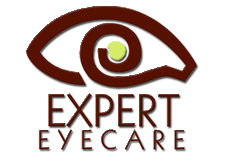Vision Therapy at Expert Eyecare
VISION THERAPY
VT is a progressive program of vision exercises or procedures performed under doctor supervision individualized to fit the visual needs of each patient.
Vision therapy is safe, drug-free, and effective for both children and adults! While visual acuity (the "20/20" part of vision) requires glasses to improve, visual skills such as tracking together along a line of text must be learned during development, these skills can also be improved later in life at any age.
It is estimated that 1 in 10 children have a vision problem severe enough to affect their learning in school, but school vision screenings can miss up to half of these problems. A comprehensive vision exam with a developmental optometrist checks all aspects of eye health, vision, and visual skills, and can ensure you or your child is not struggling unnecessarily with an undiagnosed vision problem.
VT is mainly a referral-based program in which patients can be referred by PCP or an optometrist.
To learn more about VT, click the button below!
To Take a brief survey regarding Vision Therapy Signs and Symptoms Click HERE
How can Vision Therapy help my child?
Depending on the case, the procedures are prescribed to: help patients develop or improve fundamental visual skills and abilities; improve visual comfort, ease, and efficiency or change how a patient processes or interprets visual information.
Our optometrists at Expert Eyecare provide supervised vision therapy supplemented with the use of filters, prisms, lenses and three-dimensional activities. Our vision therapy is tailored to each patient’s unique needs. Whether you are young or old, there is a good chance you can benefit from vision therapy. Contrary to popular opinion, vision therapy is not the same as eye exercises. Rather, vision therapy retrains the aspects of eyesight that are learned. This is accomplished through neuroplasticity, a process that is non-surgical.
Vision therapy addresses all sorts of visual challenges, incorporating rehabilitative therapies that make it easier for patients to improve and develop visual skills. Visual rehabilitation techniques include the use of vergence therapy, anti-suppression therapy, accommodation therapy, oculomotor exercises and patching therapy. Our vision therapy treats tracking in which a patient cannot follow a moving object properly, fixation in which a patient cannot zero in on a specific object, problems with changing focus, flawed depth perception, insufficient peripheral vision and more. Vision therapy is also helpful for patients who struggle with distance acuity, near vision acuity binocularity in which the eyes see in unison, visualization and more.

